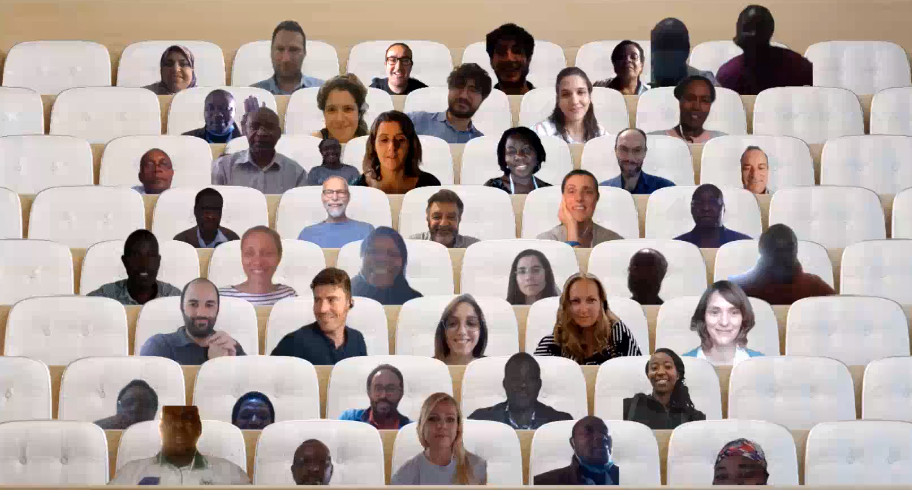FoodLAND Annual Meeting Day 1: consolidating knowledge about farmers and consumers

On 17 and 18 June 2021, we are celebrating the FoodLAND Annual Meeting. Initially, it was scheduled to celebrate it physically in Meknes, Morocco, hosted by ENAM partners. Yet, finally, it is being held online, due to the Covid-19 pandemic situation. Around 90 participants have joined the meeting.
This first day has been dedicated to the work made so far in FoodLAND to consolidate knowledge about farmers’ and consumers’ conditions, needs and preferences.
Some introductory interventions have introduced the meeting: Guest speaker Abebe Haile Gabriel, a representative of FAO, was with FoodLAND consortium partners today. He highlighted the importance of the development of the African agri-food system, as well as the potential it has, such as the new market opportunities locally and globally, and the challenges it faces, from the sustainable agriculture and food and nutritional security point of view, among others.
Two members of the FoodLAND Scientific Advisory Board also took part in the meeting. On the one hand, Philippe Petithuguenin, a member of FNSSA, emphasised the need to strengthen multilateral partnerships to deliver new solutions for green, digital, health and innovation challenges. On the other hand, Kaoutar El Fazazi, a representative of CRRAT- INRA, offered an in-depth analysis of olive oil’s contribution to human health and nutrition, together with some insights about the improvement of its nutritional quality and sensory appreciation through the introduction of flavoured supplements. In fact, olive oil is one of the food products that will be addressed in FoodLAND by Moroccan partners.
When turning to the work made for now in the six African countries FoodLAND is working at, the members in charge of the specific tasks and activities explained the overall results they have gathered. Despite the limits imposed by the pandemic and the big affection of the planned activities that Ethiopian partners have suffered due to the war crisis in Tigrai, all African countries are working hard on the project. They have started to collect information about smallholder farmers’ conditions, needs and preferences, by interviewing them and making several experiments with them. Besides, partners are also consolidating knowledge about consumers’ food behaviour and nutritional status. Very interesting results have been presented. Thus, very fruitful and interesting outcomes can be expected.
Share on Facebook Share on Twitter Share on Pinterest